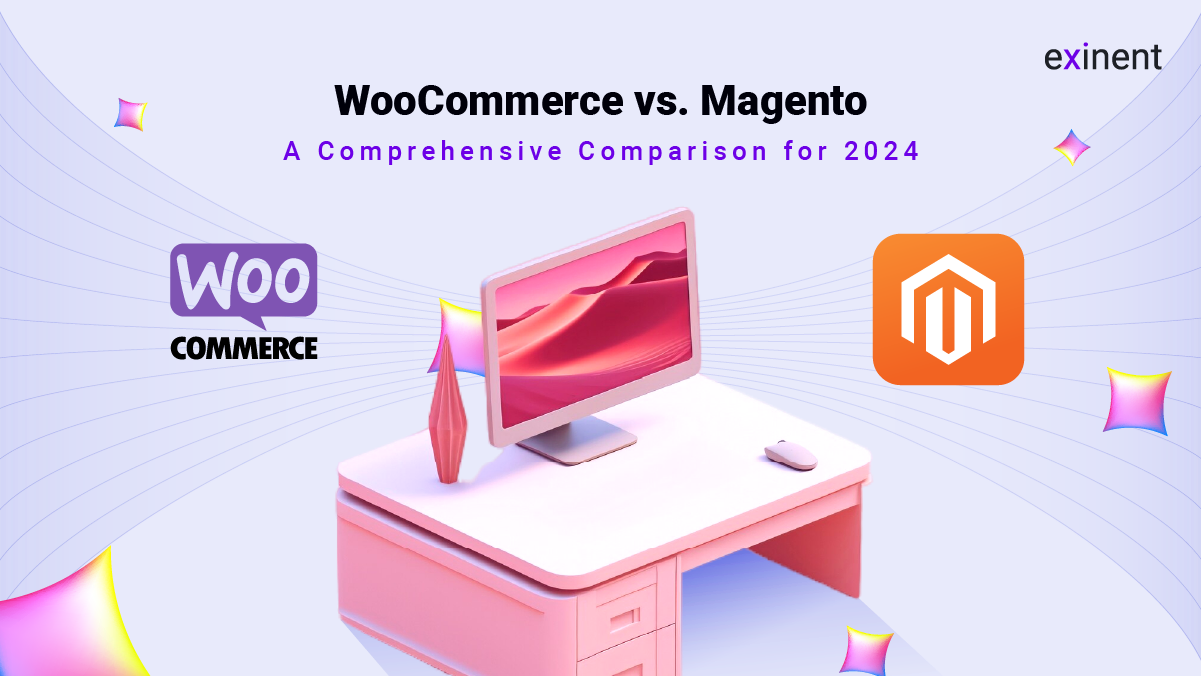
When it comes to choosing the right eCommerce platform for your business, WooCommerce and Magento often top the list. Both platforms offer robust features and flexibility, but they cater to different needs and business sizes. In this comparison, we’ll break down the key differences between WooCommerce and Magento, helping you make an informed decision for your eCommerce venture in 2024.
Overview of WooCommerce and Magento
WooCommerce is a powerful, open-source eCommerce plugin for WordPress. It’s ideal for small to medium-sized businesses, offering an easy-to-use interface, a wide range of themes, and a vast library of plugins to extend functionality. WooCommerce is particularly popular among users who are already familiar with WordPress, as it seamlessly integrates with the platform.
Magento, on the other hand, is a feature-rich eCommerce platform that caters to businesses of all sizes, from small startups to large enterprises. It offers two versions: Magento Open Source (free) and Magento Commerce (paid). Magento is known for its scalability, advanced features, and ability to handle complex eCommerce needs, making it a preferred choice for larger businesses with more extensive requirements.
Key Differences Between WooCommerce and Magento
1. Ease of Use
- WooCommerce: WooCommerce is generally easier to set up and use, especially if you’re already familiar with WordPress. The plugin integrates seamlessly with WordPress, allowing you to manage your eCommerce store from the same dashboard. WooCommerce offers a user-friendly interface, making it accessible even to those with limited technical knowledge.
- Magento: Magento has a steeper learning curve compared to WooCommerce. It’s designed for developers and businesses with technical expertise, offering a more complex interface and advanced features. While Magento provides extensive customization options, it may require professional help to set up and manage, particularly for users who are new to the platform.
2. Customization and Flexibility
- WooCommerce: WooCommerce offers a wide range of themes and plugins, allowing you to customize your store’s appearance and functionality. However, since it’s built on WordPress, WooCommerce’s customization options are somewhat dependent on the WordPress ecosystem. While it’s highly flexible, there may be limitations if you need highly specific features that are not covered by available plugins.
- Magento: Magento is known for its unmatched flexibility and customization capabilities. With Magento, you can tailor every aspect of your online store to meet specific business needs. Whether you want to customize the checkout process, integrate with third-party systems, or create unique customer experiences, Magento provides the tools and flexibility to do so. This makes Magento a better choice for businesses that require extensive customization.
3. Performance and Scalability
- WooCommerce: WooCommerce is suitable for small to medium-sized stores with moderate traffic. However, as your store grows and traffic increases, you may encounter performance issues. To maintain optimal performance, you may need to invest in a robust hosting solution and optimize your site regularly.
- Magento: Magento excels in performance and scalability, making it ideal for large, complex stores with high traffic. Magento’s architecture is designed to handle large product catalogs, high volumes of transactions, and complex configurations without compromising performance. Magento Commerce (the paid version) offers additional features like enhanced caching and performance tools, ensuring your store runs smoothly as it scales.
4. Cost
- WooCommerce: WooCommerce itself is free, but there are costs associated with hosting, themes, plugins, and extensions. The overall cost of running a WooCommerce store can vary widely depending on the specific plugins and services you need. For small to medium-sized businesses, WooCommerce can be a cost-effective solution, especially if you’re already using WordPress.
- Magento: Magento Open Source is free to download and use, but the costs can add up quickly when you factor in hosting, extensions, and development. Magento Commerce, the enterprise version, is a paid solution with licensing fees based on your business’s revenue. While Magento can be expensive, it’s often worth the investment for large businesses that require advanced features and scalability.
5. Security
- WooCommerce: Security largely depends on the hosting provider and the security measures you implement on your WordPress site. WooCommerce itself is secure, but you’ll need to stay vigilant with updates, plugins, and other security best practices to protect your store from vulnerabilities.
- Magento: Magento is known for its robust security features, including regular patches and updates, two-factor authentication (2FA), and dedicated security solutions for Magento Commerce users. Magento’s advanced security tools make it a preferred choice for businesses that prioritize data protection and compliance with industry standards.
6. SEO and Marketing
- WooCommerce: WooCommerce benefits from WordPress’s strong SEO foundation. With a variety of SEO plugins available, you can easily optimize your store for search engines. WooCommerce also offers basic marketing tools, including email marketing integrations, discount codes, and more.
- Magento: Magento offers advanced SEO capabilities right out of the box, including customizable URLs, meta tags, XML sitemaps, and more. Magento’s marketing tools are also more extensive, with built-in features for upselling, cross-selling, customer segmentation, and personalized promotions. Magento Commerce users benefit from additional marketing tools and analytics.
Which Platform is Right for You?
Choosing between WooCommerce and Magento depends on your business size, technical expertise, and specific eCommerce needs.
- Choose WooCommerce if:
- You have a small to medium-sized business.
- You’re already familiar with WordPress.
- You need a cost-effective, easy-to-use solution with basic eCommerce features.
- Choose Magento if:
- You have a large, complex store with high traffic.
- You require extensive customization and scalability.
- You prioritize security and advanced features.
Conclusion
Both WooCommerce and Magento are powerful eCommerce platforms, each with its strengths and ideal use cases. WooCommerce is perfect for smaller businesses or those looking for a simple, easy-to-manage solution. Magento, on the other hand, is better suited for larger enterprises with more complex requirements and a need for advanced customization and scalability.
